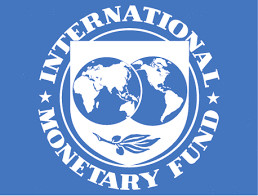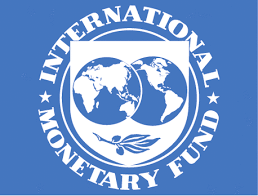
The international Monetary Fund has warned that the risks that are already building up in the global financial system could go out of hand is there is an escalation of the trade spats.
The IMF's latest Global Financial Stability Report states that there is however a sense of complacency among investors. In this biyearly report, the condition of the global financial system is analyzed and the risks of the system are highlighted.
Over the past year, record high levels have been attained multiple times by stock prices especially in the US. This indicates that the investors are willing to accept the risks and yet continue to invest. But the report said that such sentiment could change fast because of the uncertainties in global trade which could result in a sudden sell-off in financial markets.
"A further escalation of trade tensions, as well as rising geopolitical risks and policy uncertainty in major economies, could lead to a sudden deterioration in risk sentiment, triggering a broad-based correction in global capital markets and a sharp tightening of global financial conditions," the fund said in the report.
Global economic growth is being threatened by disruptions to global trade, the IMF said on Tuesday. The Fund also downgraded its forecast for global growth for 2018 and 2019 by 0.2 per cent at 3.7 per cent, and has also brought down its estimates for enhancement of global trade in goods and services.
The IMF also noted that the potential threat from the trade disputes – especially between the United States and China, has been compounded by the turbulence in the emerging markets. There have been massive capital outflows from countries such as Turkey and Argentina and the rising interest rates in the US has also caused the fall of currencies of these two countries , as have currencies of other emerging markets, against the US dollar.
The Fund said that issues in the emerging markets have so far been largely limited to some economies.
"For the moment, we see a lot of differentiation across countries, so when we compare advanced economies to emerging markets, we see that financial conditions remain easy in advanced economies and they have tightened somewhat for emerging markets," Tobias Adrian, director of the IMF's monetary and capital markets department, said during a television interview. "But even across emerging markets, we see a lot of differentiation."
"There are some countries that have been hit fairly hard in terms of capital outflows, currency depreciations and, more broadly, tighter financial conditions," he added.
He said that there are some other emerging economies that have in fact seen large capital inflows and have not seen a material deterioration “in terms of the conditions of spreads or broader financial conditions."
Yet the IMF is not ruling out the possibility of the trend spreading on a larger number of economies.
The report from the Fund said that so far, the possible changes that could be faced by the emerging markets if there is a sudden sharp tightening of the global financial conditions, have been masked by robust global risk appetite. In such as situation, there can be contagion of the risks onto the broader emerging market which therefore necessitates avoiding complacency.
(Source:www.cnbc.com)
The IMF's latest Global Financial Stability Report states that there is however a sense of complacency among investors. In this biyearly report, the condition of the global financial system is analyzed and the risks of the system are highlighted.
Over the past year, record high levels have been attained multiple times by stock prices especially in the US. This indicates that the investors are willing to accept the risks and yet continue to invest. But the report said that such sentiment could change fast because of the uncertainties in global trade which could result in a sudden sell-off in financial markets.
"A further escalation of trade tensions, as well as rising geopolitical risks and policy uncertainty in major economies, could lead to a sudden deterioration in risk sentiment, triggering a broad-based correction in global capital markets and a sharp tightening of global financial conditions," the fund said in the report.
Global economic growth is being threatened by disruptions to global trade, the IMF said on Tuesday. The Fund also downgraded its forecast for global growth for 2018 and 2019 by 0.2 per cent at 3.7 per cent, and has also brought down its estimates for enhancement of global trade in goods and services.
The IMF also noted that the potential threat from the trade disputes – especially between the United States and China, has been compounded by the turbulence in the emerging markets. There have been massive capital outflows from countries such as Turkey and Argentina and the rising interest rates in the US has also caused the fall of currencies of these two countries , as have currencies of other emerging markets, against the US dollar.
The Fund said that issues in the emerging markets have so far been largely limited to some economies.
"For the moment, we see a lot of differentiation across countries, so when we compare advanced economies to emerging markets, we see that financial conditions remain easy in advanced economies and they have tightened somewhat for emerging markets," Tobias Adrian, director of the IMF's monetary and capital markets department, said during a television interview. "But even across emerging markets, we see a lot of differentiation."
"There are some countries that have been hit fairly hard in terms of capital outflows, currency depreciations and, more broadly, tighter financial conditions," he added.
He said that there are some other emerging economies that have in fact seen large capital inflows and have not seen a material deterioration “in terms of the conditions of spreads or broader financial conditions."
Yet the IMF is not ruling out the possibility of the trend spreading on a larger number of economies.
The report from the Fund said that so far, the possible changes that could be faced by the emerging markets if there is a sudden sharp tightening of the global financial conditions, have been masked by robust global risk appetite. In such as situation, there can be contagion of the risks onto the broader emerging market which therefore necessitates avoiding complacency.
(Source:www.cnbc.com)














